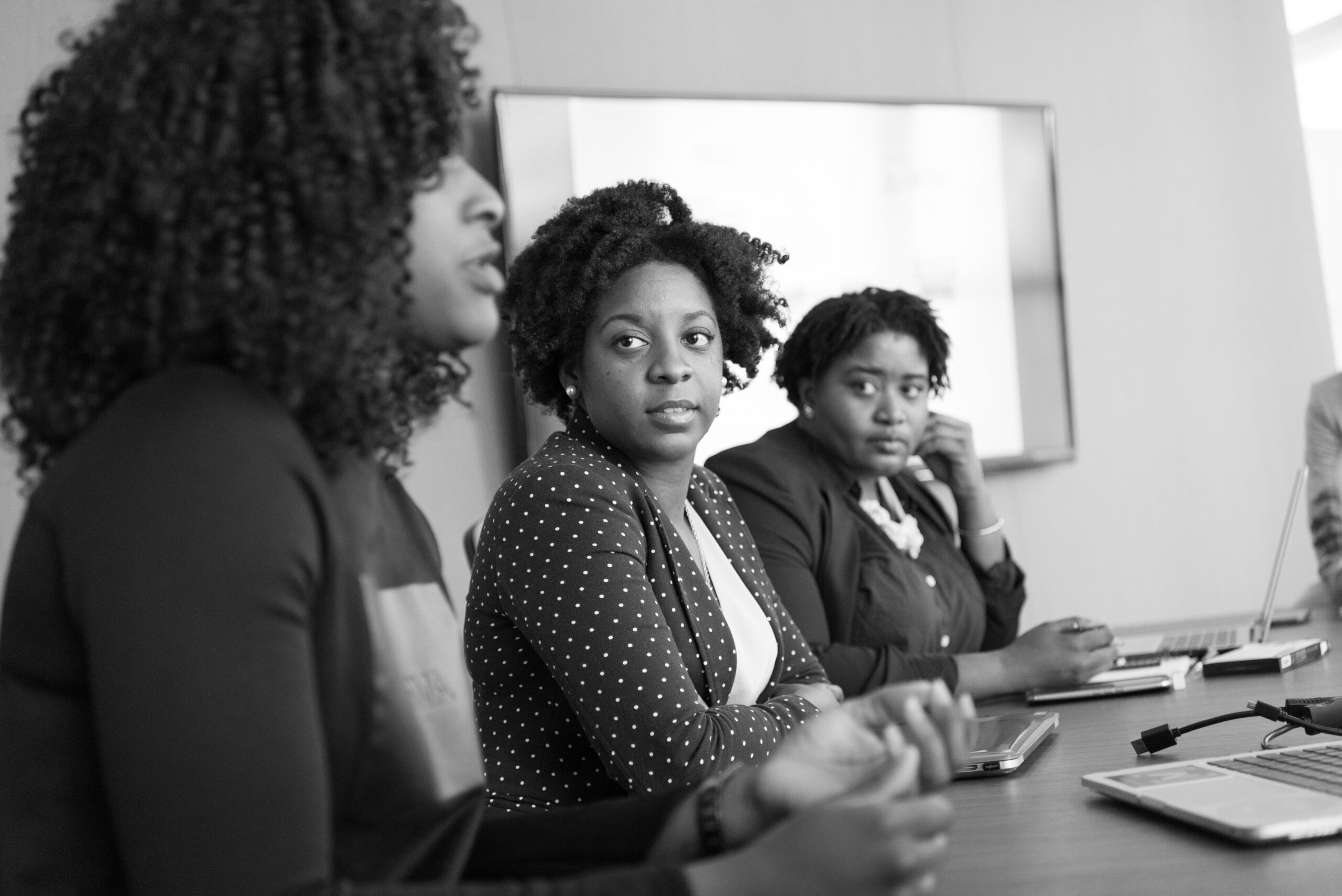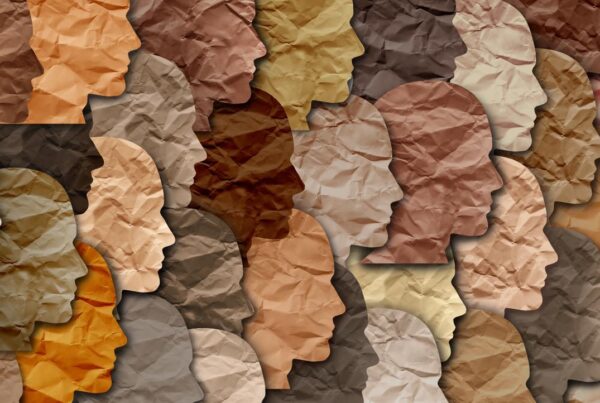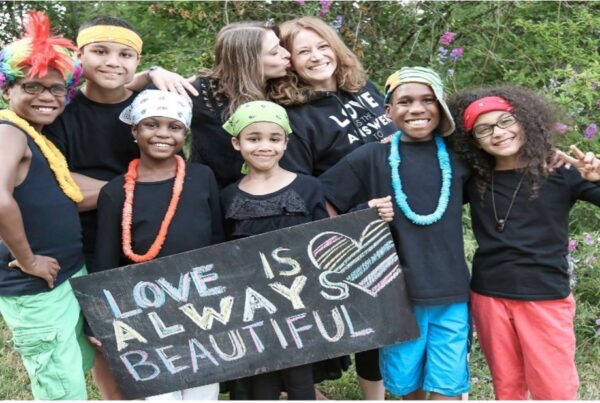Leigh-Anne Pinnock, 29, recently made what the news headlines are calling ‘shocking revelation’s’ in a new BBC documentary, Leigh-Anne: Race, Pop, and Power. For most of us, the revelations were saddening but far from shocking. Leigh-Anne revealed she was left wanting a nose job after seeing herself airbrushed to “look as white as possible” in her first ever photoshoot.
“Our entire faces and bodies had been completely airbrushed. We were made to look as white as possible, and that’s what we thought we needed to look like.”
Leigh-Anne didn’t notice she was different at first – and was extremely confused when Beyonce’s creative director Frank Gatson told her “you’re the black girl, you have to work 10 times harder” on Little Mix’s video shoot for their debut single, Wings. Over the space of the next several years, Leigh-Ann who grew up with two mixed race parents and believed she was part of a diverse country and industry, learned the hard way. She learned the hard way that as a black female minority your position is never secure or safe, it will always be questioned, doubted and as Denzel Washington famously said, ‘You’re black, you’re a woman. So, you have to be a triple/quadruple threat.’ The bottom line is that as women in many industries, feelings of imposter syndrome, feeling overlooked, unheard, less respected, and trusted and feeling the need to apologise constantly. Intersections make the sexism that exists across the hemisphere that extra bit more complex.
Intersections of race, gender, and sexuality as they are being constructed and expressed through contemporary music are damaging to female artists and more so the masses of young girls who idolize them.
‘Why do I feel invisible? Why do I feel less favoured, less desired?’ – Leigh Anne Pinnock
Leigh-Anne met with other black female musicians in the documentary to discuss their journeys, including Alexandra Burke and Sugababes singer Keisha Buchanany. X Factor winner and bestseller Alexandra revealed how she attend management companies with her mum (a bestselling singer herself) when she was younger and was told: “We’ve got one black girl on our label. We can’t have another. I was told to bleach my skin, because I was too dark, so wouldn’t sell any records.”
I lived many similar experiences in my days as a model, too many to mention. I was once told that if I had blonde hair and blue eyes I’d be ‘just what they were looking for. Usually, I was the only Black female model on the books, so hairstylists were rarely equipped to ‘deal with’ my hair and make up artists rarely had makeup for my skin. I was made to feel as though I was too ‘exotic’ and that if I looked whiter, I would be more palatable. It hurts to the core and injures our sense of self and identity; daily and racist microaggressions cause long lasting trauma. I honestly believe that if I hadn’t had such a strong black female role model in my mother, guiding and counselling me with a knowing hand, I could have ended up with serious self-perception issues. In fact, at times, I wonder how I held on to my sense of confidence at all! It wasn’t easy and I’m deeply saddened to know that the fashion and entertainment industry hasn’t made strides in the decades since I turned my back on it and turned my focus to social causes. Perhaps that is why I have, to excuse myself from a world that seemed shallow, money oriented and not yet ready for intersections. I had hoped it would be by now.
Entering into the business world and operating at a senior level and business owner introduced me to a new issue posed by my intersections as a black female, the angry black woman trope. I quickly learned that just as in the fashion industry Black women never ‘look white enough’, as it turned out we apparently can’t be silent enough either.
After slavery and the social, economic, and political effects of colonialism, Black women became the victims of negative stereotyping in mainstream American culture. These stereotypes include the myth of the angry Black woman that characterises us as aggressive, ‘fiery’, ‘sassy’, hostile, and aggressive bursting in to tempers with little provocation.
Women in general in the workplace must overcome a huge glass ceiling, an invisible barrier that prevents us from career ascension and general progression. For black women in almost every workplace, this glass ceiling is even more impenetrable. Much of this is because we must have to overcome the same angry black woman stereotype that was designed to stop black women from succeeding as ‘free women’ after slavery. Today is the especially true of the old chestnut of labelling us as angry bullies whenever we dare to be assertive, we see it in the case of Meghan Markle who, according to the media, will never be ‘made for the monarchy’ as her sister-in-law Kate and is dogged by stories of how she bullied her staff, her friends, and her allegedly scared and browbeaten husband Prince Harry, no matter what she does. Keisha spoke on her own experiences with the very same intersectional issue recalling, “I was being told, ‘This one feels bullied, that one feels bullied.’ I was giving them a foot massage the night before. I was told I was being a bully if I had an opinion. It affected me emotionally, physically, and financially. I couldn’t have an opinion in the workplace.”
Toxicity thrives in silence. Especially when that toxicity has had hundreds of years to take hold and become normalised. I applaud Leigh-Anne for her brutal honesty in exposing just how far we still have to go. I constantly have to remind my friends, colleagues, and daughters that they are worthy enough. This is due to the constant pressure to feel beautiful enough, clever enough, funny enough, thin enough, white enough and more in every area of life. My hope is that by the time the next generation grows up, that black women will have achieved a zone where we have made our intersections work for us, instead of constantly being victimised because of them.
To Leigh-Anne, from one black woman to another, keep pushing forward, even though doing the right thing often means standing alone. Your position of influence gives you the perfect platform to change the world. Thank you for using your voice to speak up on all our behalf and as the generation above you, I want to let you know I’m proud of you and the blaze you are trailing. You are not alone.





